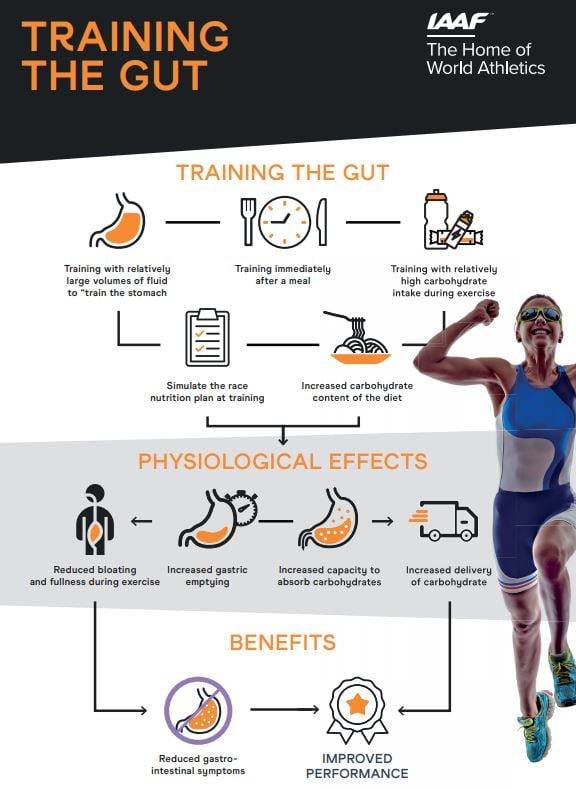The guide includes sixteen articles on different aspects of sports nutrition, including one detailing frameworks for periodised nutrition and another describing how dietary supplement use for track-and-field athletes.
“Sports nutrition is a dynamic and constantly evolving science,” says Louise Burke, Head of Sports Nutrition at the Australian Institute of Sport in April this year.
“The 2019 IAAF Consensus Statement on Nutrition for Athletics updates athletes, coaches and their entourage about changes in the knowledge and practice of nutrition for performance and health over the past decade.”
Five core athletic areas

The IAAF’s articles, published in the International Journal of Sports Nutrition and Exercise Metabolism in April, apply new developments in sports nutrition to the five core areas of athletics.
These include sprints, jumps/throws/combined events, middle distance, long distance and ultra-distance/mountain running.
A team of 50 experts, led by Lindy Castell from Green Templeton College at Oxford University and Louise Burke, have authored these articles.
Along with this research, a series of infographics are also available that illustrate key nutritional findings for athletes looking for the latest information on fuelling training and performance.
The six infographics focus on mouth sensing of carbohydrates, the benefits of training with low glycogen stores, carbohydrate intakes in endurance events, low energy availability in athletics, training the gut and preventing runner’s diarrhoea.
Personalised plan
“A key message is that each athlete should have an eating plan that is personalised to their event and individual needs,” Burke said.
“This plan should be periodised to address shifting goals and training practices across micro- to macro-cycles of the annual plan, and able to be put into practice in every environment experienced by the athlete.
A personalised programme, “achieved by teamwork between the coach, athlete, and sports science and nutrition experts, will help the athlete reach performance goals as well as achieving a long career through management of the risk of illness and injury.”
In an effort to respond to the ever-evolving world of sports nutrition and address increased supplemental use the IAAF released its consensus statement back in April.
It preaches a food first philosophy as well as a personalised approach with the latest findings used to assess types, amounts and timing of food and fluid intake as well as supplement and sports food use.
The IAAF plan to release more infographics next month that seek to address further key themes of the nutrition research.


